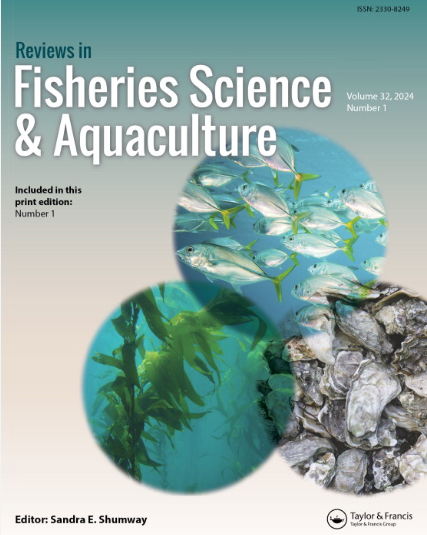渔业科学中基于agent的仿真模型
IF 5.3
1区 农林科学
Q1 FISHERIES
引用次数: 0
摘要
人的维度是渔业等社会生态系统管理中不确定性的一个主要来源。基于主体的模型(ABMs)可以通过建模和模拟人类行为来帮助减少这些不确定性。为了了解ABMs如何在渔业科学中应用,基于对其他社会生态领域、理论框架和文献标准的回顾,开发了一个分类方案。该分类方案随后被用于审查基于主体的模拟研究,这些研究模拟了渔业背景下的人类决策,以确定趋势和知识差距。该分类方案的应用表明,现有的与渔业相关的人工智能模型采用了多种决策理论、政策、社会互动、代理记忆和数据源,并显示了人工智能模型在广泛的研究问题和管理建议方面的广泛应用潜力。然而,事实证明,到目前为止,环境因素如何影响捕捞决策,社会规范和学习如何影响捕捞行为,几乎没有被探索过。还很明显,需要改进反刍生物的文件和来源信息,例如,通过采用标准化文件程序,如ODD + D和TRACE,以提高反刍生物在渔业科学中的可信度、透明度和可重复使用性。本文章由计算机程序翻译,如有差异,请以英文原文为准。
Agent-Based Simulation Models in Fisheries Science
Abstract The human dimension is one major source of uncertainty in the management of social-ecological systems such as fisheries. Agent-based models (ABMs) can help to reduce these uncertainties by making it possible to model and simulate human behavior. To understand how ABMs can be applied in fisheries science, a classification scheme was developed based on reviews in other social-ecological domains, theoretical frameworks, and documentation standards. This classification scheme was subsequently used to review agent-based simulation studies that modeled human decision-making in a fisheries context to identify trends and knowledge gaps. Applying the classification scheme revealed that the existing fisheries-related ABMs employ a variety of decision theories, policies, social interactions, agent memories, and data sources, and revealed a wide potential for applications of ABMs to a broad range of research questions and management recommendations. Nevertheless, it turned out that it is, so far, virtually unexplored how environmental factors influence fishing decisions or how social norms and learning influence fishing behavior. It also became clear that the documentation and provenance information of ABMs need to be improved – e.g., by applying standardized documentation procedures, such as ODD + D and TRACE – to enhance the credibility, transparency, and reusability of ABMs in fisheries science.
求助全文
通过发布文献求助,成功后即可免费获取论文全文。
去求助
来源期刊

Reviews in Fisheries Science & Aquaculture
FISHERIES-
CiteScore
25.20
自引率
0.90%
发文量
19
期刊介绍:
Reviews in Fisheries Science & Aquaculture provides an important forum for the publication of up-to-date reviews covering a broad range of subject areas including management, aquaculture, taxonomy, behavior, stock identification, genetics, nutrition, and physiology. Issues concerning finfish and aquatic invertebrates prized for their economic or recreational importance, their value as indicators of environmental health, or their natural beauty are addressed. An important resource that keeps you apprised of the latest changes in the field, each issue of Reviews in Fisheries Science & Aquaculture presents useful information to fisheries and aquaculture scientists in academia, state and federal natural resources agencies, and the private sector.
 求助内容:
求助内容: 应助结果提醒方式:
应助结果提醒方式:


